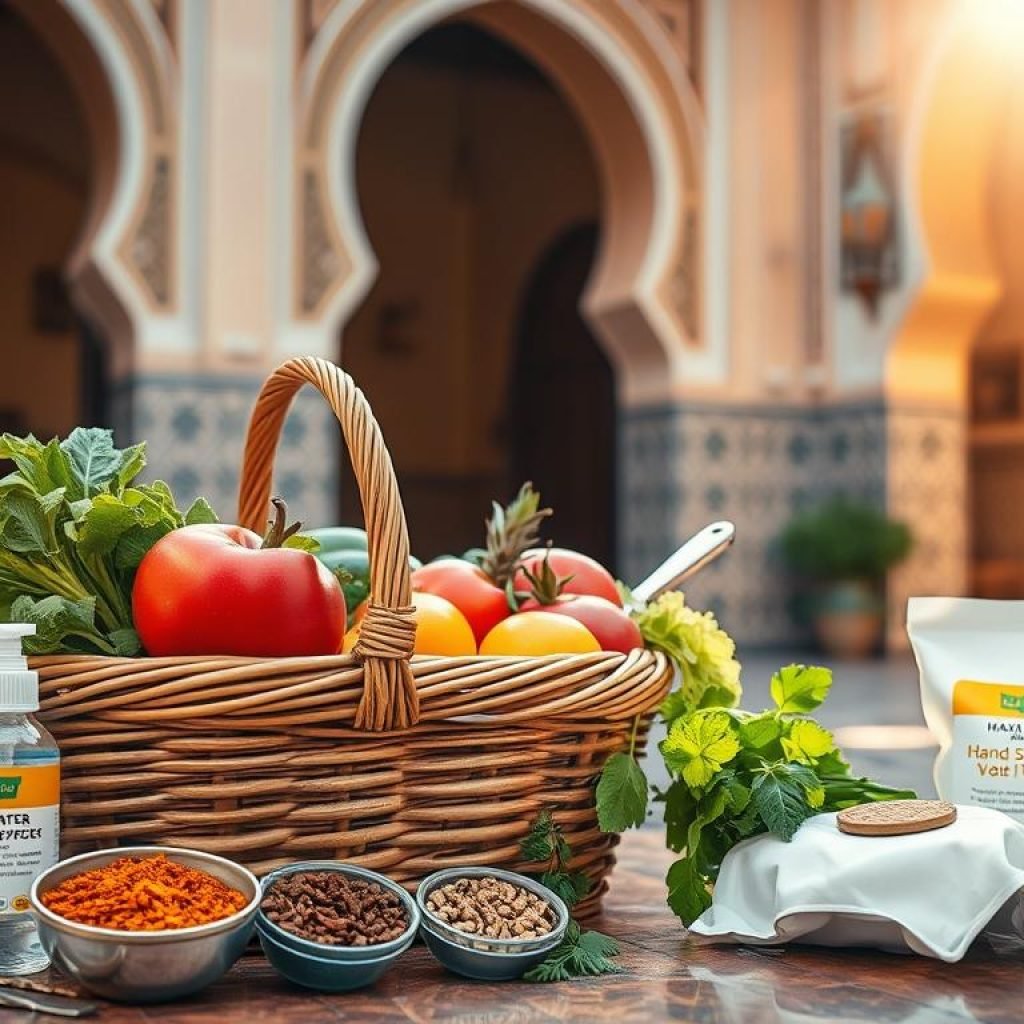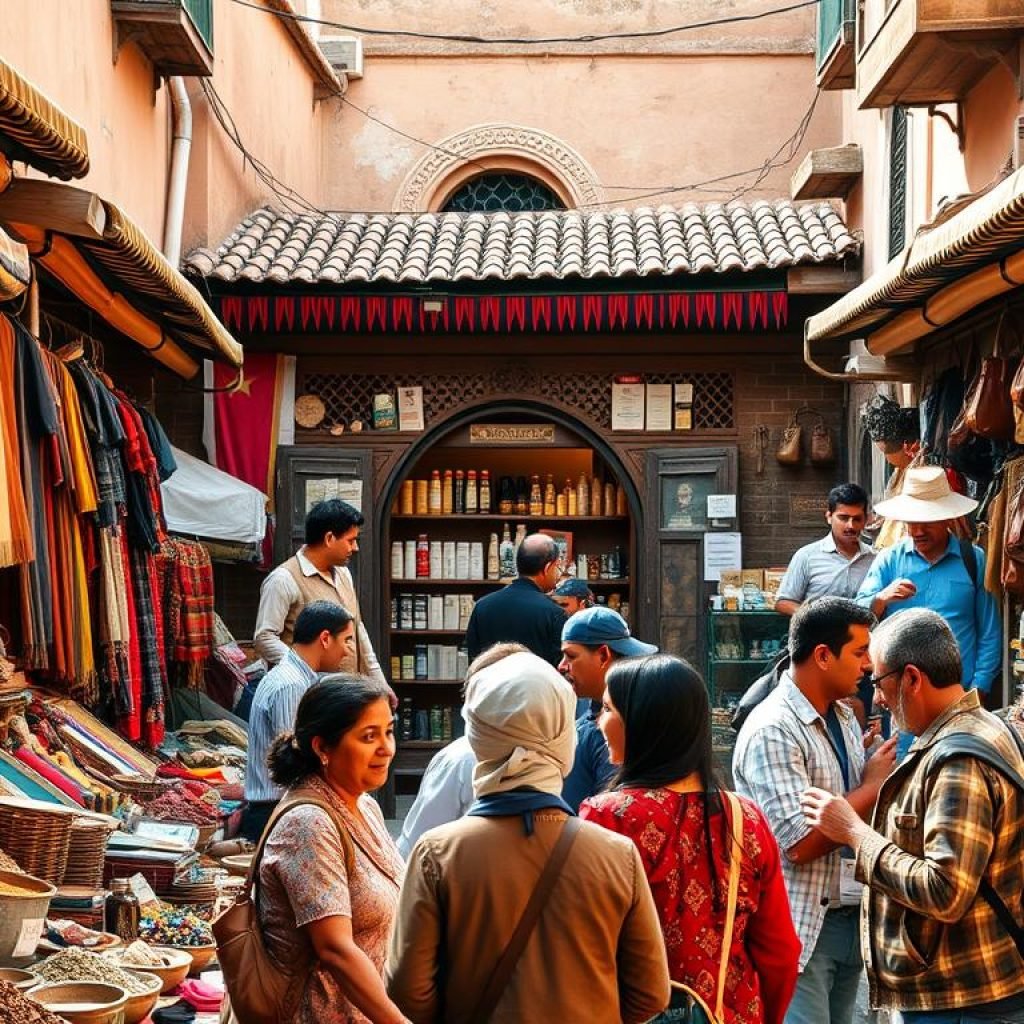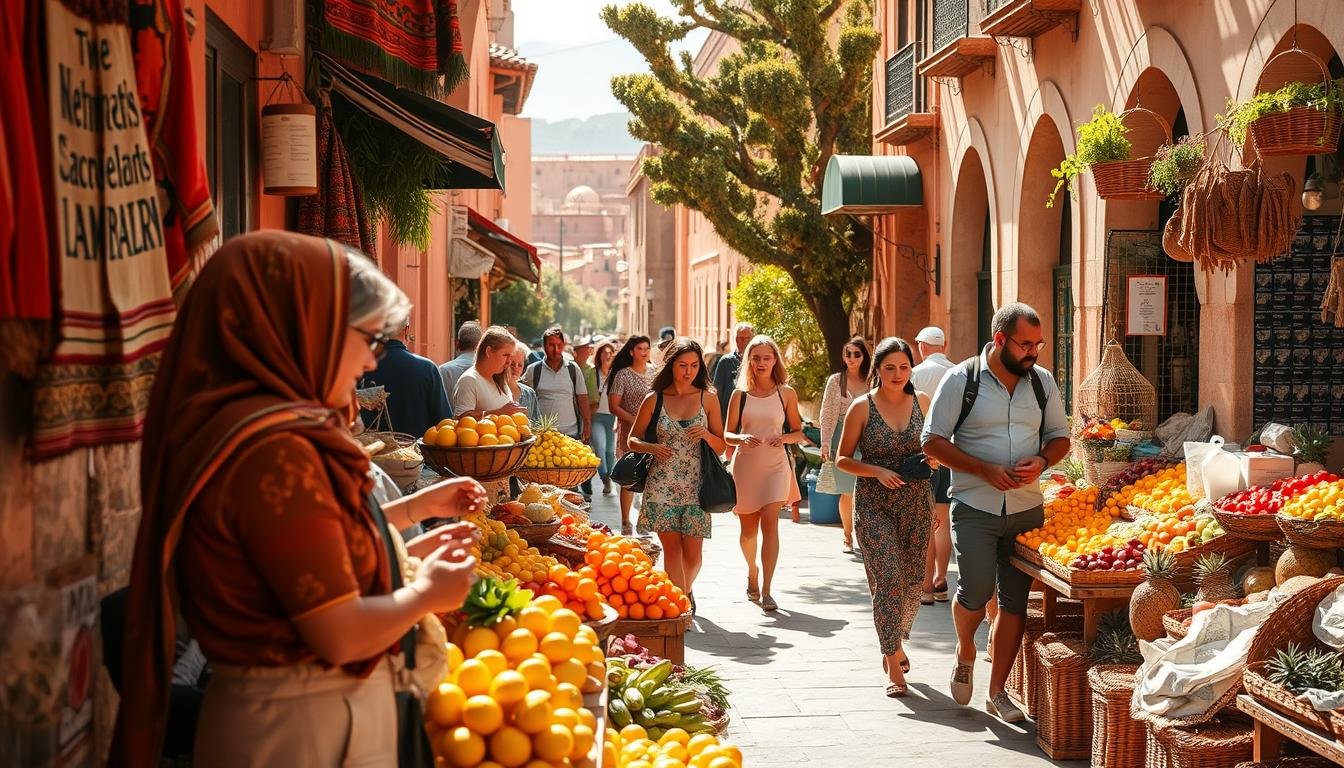Traveling to a new country is always an adventure, but it also comes with its own set of challenges. When you’re exploring the vibrant cities and stunning landscapes of Morocco, staying healthy should be a top priority. The last thing you want is an unexpected illness to disrupt your trip.
From the bustling markets of Marrakech to the serene deserts, Morocco offers a unique experience. However, the unfamiliar environment can pose certain risks. Contaminated food, insect bites, and even the desert heat can affect your well-being. That’s why preparation is key.
Before you embark on your journey, make sure you’re up-to-date on essential vaccinations like typhoid and hepatitis A. It’s also wise to invest in travel insurance that covers medical emergencies. These simple steps can save you a lot of trouble down the road.
Understanding the local healthcare system is equally important. Public and private medical facilities differ in quality, so knowing where to go in case of an emergency is crucial. With the right precautions, you can enjoy your Moroccan adventure to the fullest.
Key Takeaways
- Stay updated on essential vaccinations before your trip.
- Invest in travel insurance for medical emergencies.
- Avoid tap water and be cautious with food choices.
- Use insect repellent to prevent bites in rural areas.
- Know the difference between public and private medical facilities.
Preparing for Your Trip: Vaccinations, Insurance, and Health Precautions
Your adventure begins long before you set foot in a new destination. Proper preparation ensures a safer and more enjoyable experience. From vaccinations to travel insurance, taking the right steps can make all the difference.
Consulting with a Travel Health Professional
Before embarking on your journey, schedule an appointment with a travel health professional. They can provide personalized advice based on your destination and medical history. This step is especially important if you have chronic conditions or specific health concerns.
A doctor can assess your risk exposure and recommend necessary precautions. For example, they might suggest vaccinations or medications tailored to your itinerary. Consulting a professional ensures you’re well-prepared for any health challenges.
Required Vaccinations and Medications
Certain vaccinations are essential for travelers. Hepatitis A, Tetanus, and Typhoid are commonly recommended for this destination. These vaccines protect against diseases that can be contracted through contaminated food or water.
Additionally, ensure you have enough medication for chronic conditions. Carry a copy of your prescriptions in case you need refills abroad. Being proactive about your health minimizes risks and keeps your trip on track.
Obtaining Travel Insurance and Emergency Contacts
Travel insurance is a must for any trip. It covers medical emergencies, evacuation, and unexpected cancellations. Make sure your policy includes comprehensive health coverage, especially for international travel.
Keep a list of emergency contacts, including local medical facilities and your insurance provider. Having this information readily available can save time and stress in case of an emergency. Preparation is your best ally when traveling to unfamiliar places.
| Vaccination | Purpose | Recommended For |
|---|---|---|
| Hepatitis A | Prevents liver infection | All travelers |
| Tetanus | Protects against bacterial infection | All travelers |
| Typhoid | Prevents food and waterborne illness | Travelers to rural areas |
For more detailed advice, visit the CDC’s travel health page. This resource provides up-to-date information on health risks and safety measures for your destination.
Essential Morocco Health Tips for a Safe Journey
Exploring a new destination requires more than just packing your bags; it demands careful planning for your well-being. Staying safe while traveling involves understanding potential risks and taking proactive steps to minimize them. From food and water safety to preventing insect bites, these tips will help you enjoy your trip without unnecessary health concerns.
Food and Water Safety Measures
One of the most common risks travelers face is exposure to contaminated food and water. To avoid waterborne illnesses, always drink bottled or boiled water. Avoid ice in drinks unless you’re sure it’s made from safe water. When it comes to food, follow the rule: “Boil it, cook it, peel it, or leave it.”
Street food can be tempting, but ensure it’s freshly cooked and served hot. Avoid raw or undercooked meats and seafood. Stick to fruits you can peel yourself, like bananas or oranges. These simple precautions can significantly reduce your risk of travelers’ diarrhea and other food-related illnesses.

Preventing Insect Bites and Managing Minor Injuries
Insect bites can be more than just annoying; they can pose serious health risks. In areas where mosquitoes are prevalent, use insect repellent with at least 20% DEET. Wear long sleeves and pants, especially during dawn and dusk when mosquitoes are most active. If you’re staying in rural areas, consider sleeping under a mosquito net.
For minor injuries like cuts or scrapes, carry a basic first aid kit. Clean wounds immediately with antiseptic wipes and cover them with a bandage. If you’re bitten by an insect, avoid scratching to prevent infection. Apply an anti-itch cream or take an antihistamine if necessary.
- Drink bottled or boiled water to avoid waterborne illnesses.
- Choose freshly cooked food and avoid raw or undercooked items.
- Use insect repellent and wear protective clothing to prevent bites.
- Carry a first aid kit for minor injuries and insect bites.
By staying vigilant and following these precautions, you can minimize health risks and focus on enjoying your adventure. Remember, a little preparation goes a long way in ensuring a safe and memorable trip.
Navigating Local Healthcare Options and Emergency Services
Knowing how to access healthcare in a foreign country can make or break your travel experience. In Morocco, the healthcare system is divided into public and private sectors, each with its own strengths and challenges. Understanding these options ensures you’re prepared for any medical situation during your trip.
Understanding Public vs. Private Clinics
Public healthcare in Morocco is accessible and affordable, but it often comes with long wait times and limited resources. Facilities in major cities like Casablanca, Marrakech, and Rabat are better equipped, but rural areas may lack adequate services. For non-emergency conditions, private clinics are the preferred choice. They offer higher standards of care, shorter wait times, and often have English-speaking staff.
Private hospitals like Clinique Internationale Marrakech and Clinique Agdal in Rabat are well-regarded for their quality. However, treatment costs must be paid in cash, so ensure you have sufficient funds. If you’re planning a desert tour, it’s wise to research nearby clinics in advance.
When and How to Access Emergency Medical Care
In case of an emergency, dial 150 for an ambulance. Public hospitals handle emergencies, but private facilities are often faster and more reliable. For serious conditions, consider medical evacuation, which is covered by comprehensive travel insurance.
Here are key steps to ensure prompt medical treatment:
- Carry cash for immediate payment of medical bills.
- Keep a list of emergency contacts, including your insurance provider.
- Identify English-speaking doctors or clinics in advance.
- Pack a travel health kit with essentials like antiseptic wipes and pain relievers.
By understanding local healthcare options and preparing for emergencies, you can minimize risks and focus on enjoying your Moroccan adventure.
Adapting to Local Health Practices and Customs
Adapting to local customs is a key part of any travel experience. When visiting a new destination, understanding and respecting cultural norms can make a significant difference. This is especially true in healthcare settings, where sensitivity and awareness are essential.

Respecting Moroccan Cultural Norms in Healthcare
In Morocco, healthcare practices often reflect the country’s cultural values. For example, modesty is highly regarded, so dressing conservatively when visiting clinics or hospitals is appreciated. Additionally, it’s common for family members to be involved in medical decisions, which may differ from practices in other countries.
When communicating with healthcare providers, being polite and patient goes a long way. While some doctors may speak English, learning a few basic phrases in Arabic or French can help bridge the language gap. Respecting these norms not only ensures smoother interactions but also fosters mutual understanding.
Staying Informed About Regional Health Risks
Staying updated on regional health risks is crucial for any traveler. In Morocco, risks can vary depending on the area. For instance, rural regions may have higher exposure to insect-borne illnesses, while urban areas might pose challenges like air pollution.
Check local news sources and government advisories for the latest information. This helps you take proactive steps, such as using insect repellent or avoiding areas with reported outbreaks. Being informed allows you to navigate your journey with confidence and safety.
- Dress modestly when visiting healthcare facilities to show respect for local customs.
- Learn basic phrases in Arabic or French to communicate effectively with providers.
- Stay updated on regional health risks through reliable sources.
- Be flexible and open-minded when adapting to unfamiliar practices.
By respecting cultural norms and staying informed, you can ensure a safer and more enjoyable travel experience. Embracing these practices not only protects your well-being but also enriches your connection to the destination.
Conclusion
Preparation is the cornerstone of a safe and enjoyable journey. From essential vaccinations to comprehensive travel insurance, taking the right steps before your trip minimizes risk and ensures peace of mind. Staying vigilant about food and water safety, using insect repellent to prevent bites, and carrying a first aid kit are simple yet effective measures.
Understanding local healthcare options and emergency protocols is equally important. Whether in a bustling city or a remote area, knowing where to seek medical help can save valuable time. Respecting cultural norms and adapting to local practices not only enhances your experience but also fosters mutual respect.
Being proactive and well-informed allows you to focus on the beauty of your destination. Before you embark on your adventure, take a moment to review your travel arrangements and ensure you’re fully prepared. A little effort goes a long way in making your journey safe and memorable.




Comment (0)